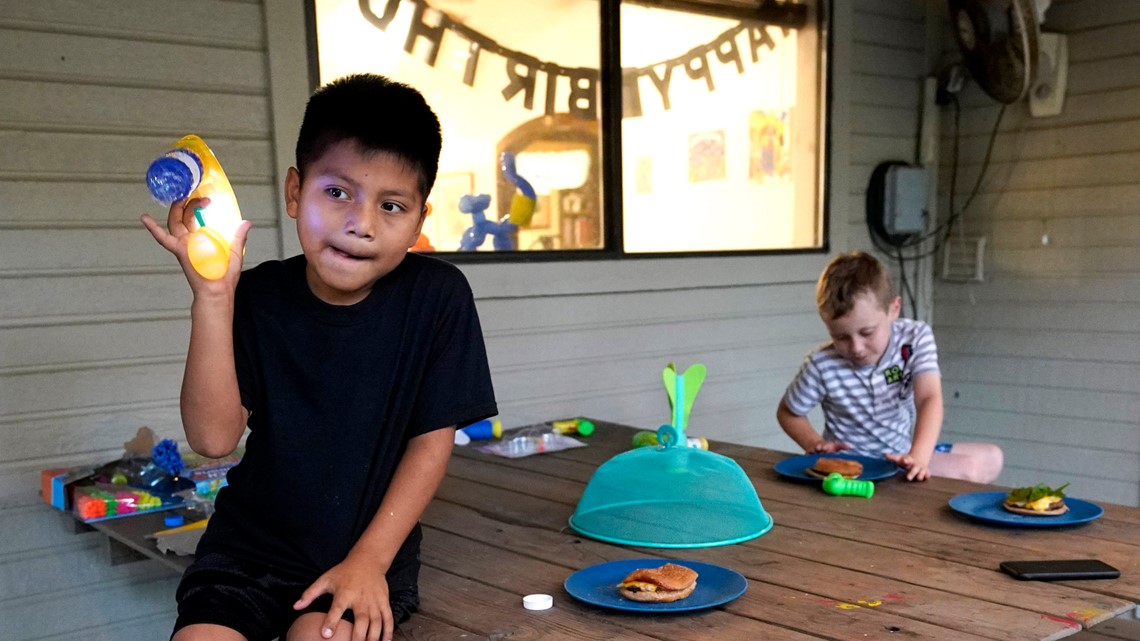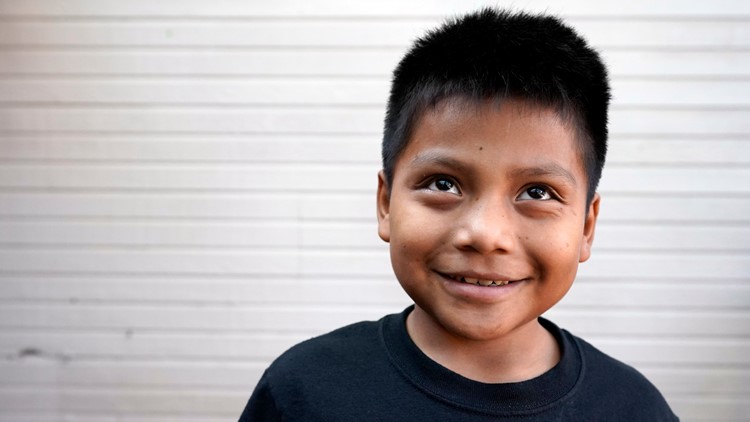BUDA, Texas — There were water balloons at Byron Xol's birthday party — bunches of them, filled a dozen at a time. He squeezed them with both hands, until the water burst on his face and chest.
"Super good!" the 9-year-old yelled, again and again.
It's a new catchphrase — but then, Byron spoke no English at all 15 months ago.
It was then that he was packed in a wooden crate by smugglers and shipped from Guatemala to the U.S., only to be grabbed immediately by border agents and ripped away from his father.
His dad was deported. Byron remained, locked away with the thousands of children separated from their parents at the U.S.-Mexico border by the Trump administration. More than a year after the practice ended, a small number of children like Byron remain in limbo, far from their families.
The boy spent his ninth birthday in central Texas, with a host family devoted to giving him a loving home. For weeks they'd planned this day: the party in their leafy, suburban backyard, the grilled sausages, the rainbow-colored cakes, the water balloons.
His parents, meanwhile, passed the day a thousand miles away, in the gang-ridden forests Byron and his father had tried to escape. They have not seen their child in more than a year.
But they have hope. A federal judge could soon decide whether to let the father return to the U.S. If he rejects the motion, Byron may be sent home to Guatemala. So much hangs in the balance.
"I think I'm going to go with you, or you're going to come here," the boy told his father, David, when they spoke on his birthday. "I don't know what's going to happen to me."

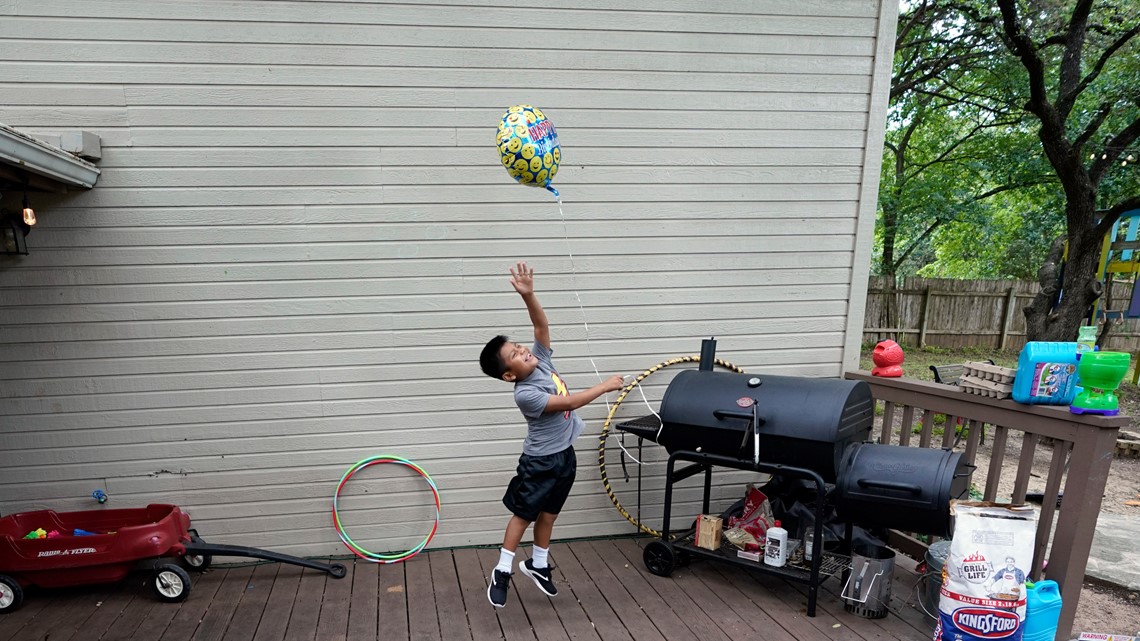
Back home in Guatemala, Byron always asked his parents if it was his birthday, no matter whether June 24 was a week or several months away.
"We'd tell him how many days were left," his father said, smiling.
When the day arrived, David Xol would buy a small cake — a "pastelito" — for Byron to share with his two younger brothers. Then, between 10 p.m. and 11 p.m., they would gather to pray during the hour that Byron was born, to give thanks that God blessed them with their first son.
San Miguel el Limón is a day's drive away from the capital on narrow, winding roads. Most people are subsistence farmers or laborers. The village itself consists of around 100 small homes, most built of wood. There's a one-story school and several evangelical churches, sanctuaries of a faith spread through Guatemala in part by American missionaries in the 1970s.
Byron's first language was Q'eqchi, one of several dialects that trace back to Mayan times.
David, 27, worked a series of jobs as a laborer. He and his wife Florinda, 23, raised Byron and his brothers in their two-room, cinderblock-and-wood home. The parents slept in one bed; the brothers slept in another.
They went to church almost every day. David says he preached the word of God, just as his father did. His preaching caught the notice of gangsters who tried to recruit him; when he refused, citing his faith's prohibition of violence, they threatened David and his eldest son, he says.
On May 4, 2018, David and Byron left San Miguel to seek asylum in the United States.
Like tens of thousands of Guatemalans who have fled north, David hired a human smuggler, or "coyote," for 45,000 Guatemalan quetzals, or about $6,000. He borrowed the money.
They were smuggled through Mexico by truck in a wooden crate. In the middle of the night, the coyote sent them and about 20 other migrants across the Rio Grande, the river that separates the U.S. and Mexico.
The Border Patrol was waiting on the other side.
They were taken to the central processing center, a converted warehouse where hundreds of adults and children were detained in large cages of chain-link fencing.
David was charged with illegal entry on May 19, the day after they were detained.
Two days later, an officer at the warehouse escorted him into a private room and presented him with a document he couldn't read. If he signed it, the officer said, he could be deported with Byron. David refused.
A second officer entered. David says he was told that if he tried to seek asylum, the two would be separated. David would be detained for at least two years, while Byron would be given up for adoption. Their only option was to sign the document and be deported together.
He signed, renouncing his asylum claim. He didn't know the document would allow the agents to take his son away.
As soon as he signed the document, he says, Byron was taken away from him.
Seven days later, he was deported.
David returned to San Miguel el Limón. Florinda screamed when she saw him arrive alone.

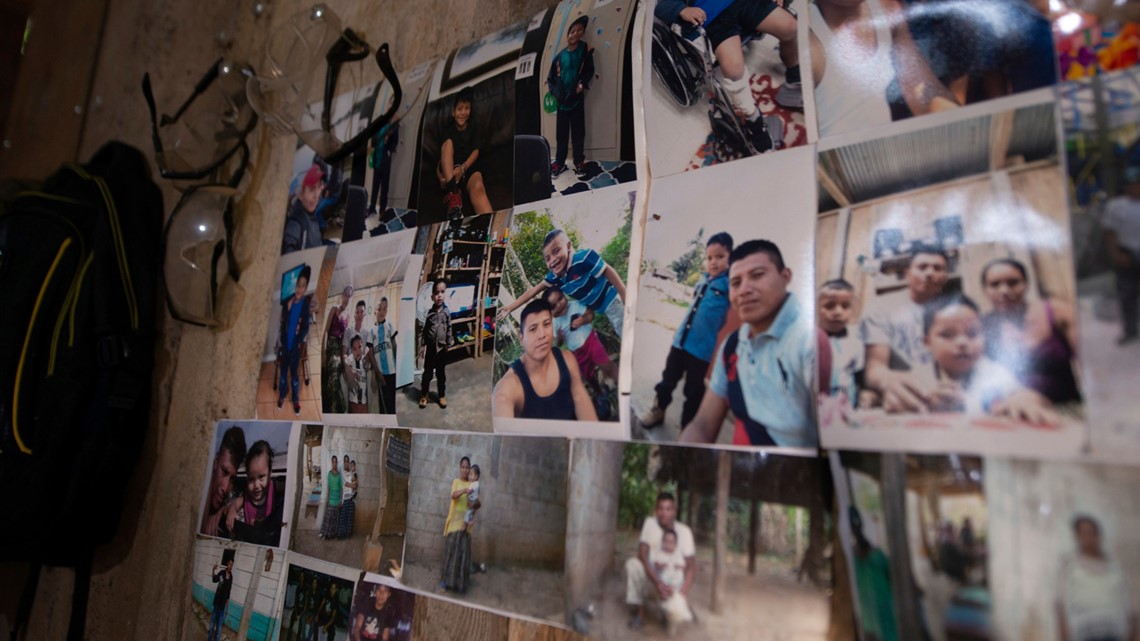
Months later, he recounted the last words he exchanged with Byron in the processing center.
"If I don't return to see you, remember that I am your father," he says he told Byron.
"He told me, 'It's OK, Dad. Don't worry. I'm going to be OK.'"
___
Byron was sent to an old elementary school just outside Houston that had been converted to house 160 children. Operated by the nonprofit Baptist Child and Family Services, the facility had beds, common areas, classes, phones to call family and lawyers, and three meals a day.
Byron was given weekly phone calls home. He cried during the first several weeks and begged his parents to bring him back to San Miguel. At times, he angrily refused to speak to his father.
More than a month after he was placed in the facility, on June 26, 2018, a judge ordered the Trump administration to stop separating families and reunite parents and children. Judge Dana Sabraw's order required children under 5 years old to be returned to their parents in 14 days, and every other child to be returned within 30.
Children and parents began to be re-united in detention facilities, then released. But by the time Sabraw issued his order, more than 400 parents had already been deported without their children, including David.
The parents faced a choice: Should they request that their children be returned to them in places they had fled? Or should they keep their children in the U.S., waiting in facilities until a relative could sponsor them?
The Xol family had no relatives or friends in the U.S. who could take Byron. With no potential sponsors, Byron could be detained indefinitely.
But David's life back in Guatemala was troubled. He found work chopping trees at a palm oil plant an hour's drive away. Otherwise, he stayed at home as much as possible. He knew the gang members were still out there.
The other men in San Miguel question how he could have come home without his son and mock him as a crybaby when he tears up about Byron.

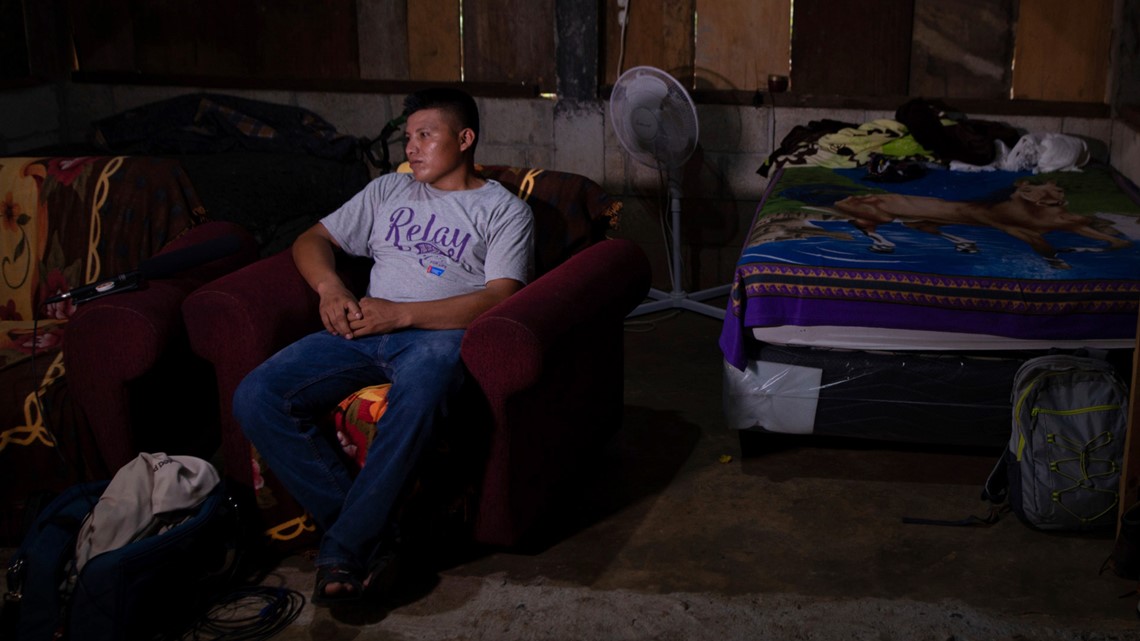
The debt he had undertaken to pay the coyote has grown from $6,000 to $8,000. His monthly salary at the palm oil plant is about $400. His payments on the debt take up almost all of that. To pay for food, he worked extra hours. He sold his cellphone to help pay for the debt.
His hopes were flagging. But then he met Ricardo de Anda, a human rights lawyer working with the American Civil Liberties Union.
Alerted to the Xols' case by news coverage, de Anda went to Guatemala to discuss an option: David should petition to return to the United States, while Byron remained there.
While de Anda had brought other children back to their parents in Central America, both he and David agreed that Byron would be in danger if he returned to Guatemala. And de Anda believed David had a strong case for asylum due to religious persecution — a case he says border agents wrongly made David drop. But Byron had to stay in the United States while the case went forward.
"Byron was the key," de Anda said. "If Byron had been repatriated, there would have been no basis, no standing, for either of them to come back."
David agreed. Byron would stay.
De Anda visited the boy, first in the suburban Houston facility where he was initially taken, then at two of the three others where he was transferred. He could tell Byron was picking up Spanish from the other boys in detention. They could speak more easily about the case.
De Anda described seeing children become depressed and unresponsive after months of detention, but Byron "wasn't overwhelmed by his experience. His curiosity never seemed to be dampened."
The process of applying for David to re-enter the U.S. would take months. De Anda needed to find another place for Byron to live in the meantime.
Through other lawyers, he found a family.
___
Matthew and Holly Sewell live in a spacious, five-bedroom house near Austin, Texas. Matthew, 49, works as a software engineer; Holly, 41, stays at home with their children, 6-year-old Desmond and 5-year-old Windy.
Watching the news last summer, they heard that children were being detained after their parents had been deported. And they thought: Why not provide a real home for at least one child?
"The conversation we had is, somebody needs to do it," Matthew said. "If not us, who?"
De Anda connected the Sewells to Byron and his family. After months of phone conversations, David and Florinda Xol said Byron could live with the Sewells while David's case moved forward.

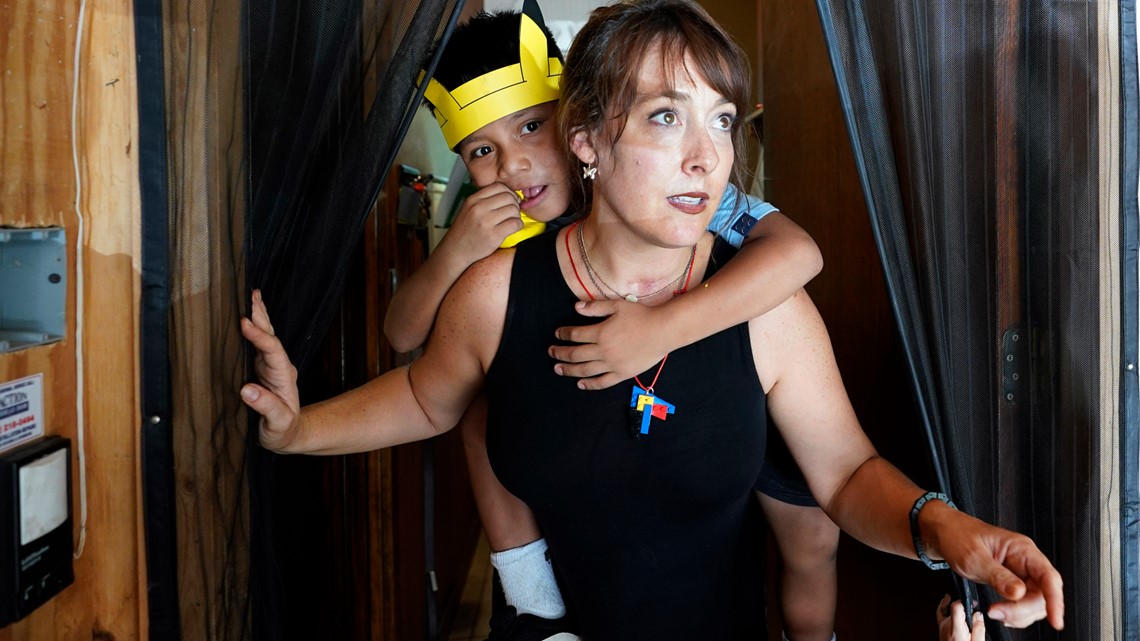
Though David and Florinda approved, the U.S. Department of Health and Human Services refused several requests from the Sewells to sponsor Byron because they weren't related to him and had no prior relationship with his family.
HHS argues those rules are necessary to protect children. De Anda and the Sewells argued the department was detaining Byron for no reason.
De Anda sued HHS in February. A federal judge in April ordered HHS to consider the Sewells as sponsors.
The Sewells got the call: Byron was being flown to Austin, and they needed to bring a wheelchair. A few weeks earlier, they had been told, Byron had broken his right leg playing soccer.
They brought him home. The Sewells had hung a banner above the bed in the downstairs guest room: "Bienvenido Byron."
Holly Sewell requested medical records from the facility that she shared with The Associated Press. They show that Byron's thigh fracture was misdiagnosed at one point as a broken ankle.
Several days passed after the injury before Byron placed in a full cast. And the break was on Byron's growth plate, the soft area in his leg that had not yet hardened to bone. If not treated properly, the break could stunt his growth.
BCFS, the nonprofit that ran the facility, says it's confident that Byron received appropriate medical care.
The Sewells took him to a doctor specializing in pediatric foot injuries and enrolled him in physical therapy.
According to the Sewells, the government took the position that sponsors must care for the children they're sheltering. The family paid for doctor's appointments out of pocket before Matthew Sewell's employer agreed to re-open its insurance contract so that Byron could be covered.
As he recovered, the Sewells started to see more of his personality — his wide smile, his sense of humor — and his ability to adapt.

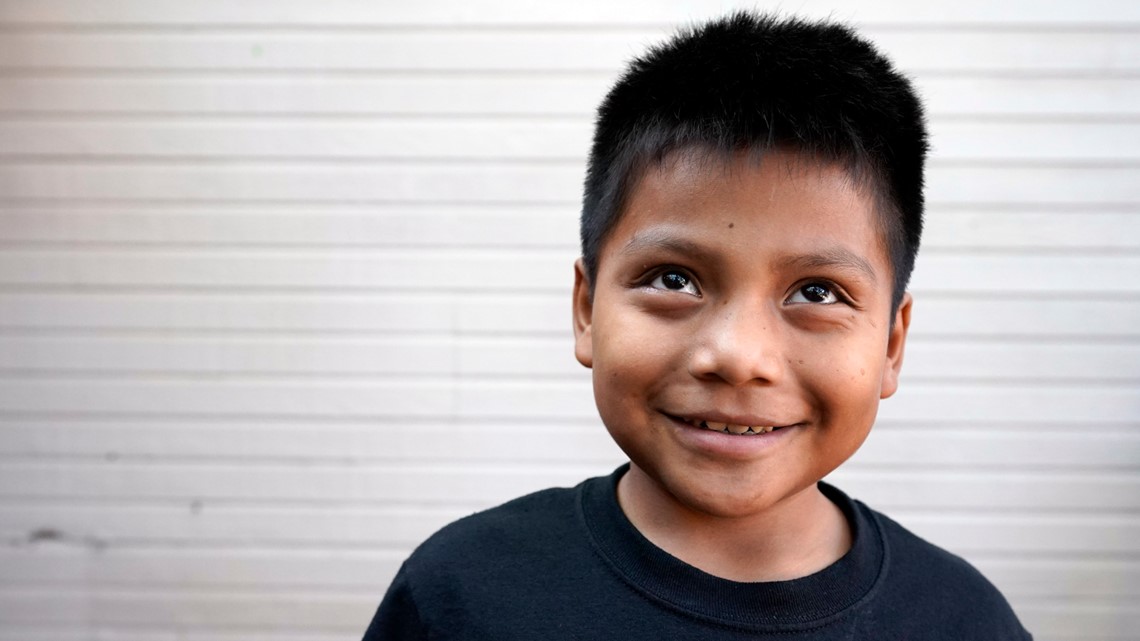
He loves to yell commands at Alexa, the digital assistant in their kitchen, in a mix of the languages he's picked up over time: Q'eqchi, Spanish, and English. When the assistant doesn't respond, he yells, over and over: "Hey Alexa!"
At the beginning, they relied on Google's translation app. Holly or Matthew would ask a question in English and wait for the Spanish translation to be read out so Byron could respond.
Soon, they didn't need to use the app for most conversations as Byron started to pick up more English. The sticky notes they had placed all over the house with English and Spanish translations — the door, the microwave, the bathroom — were rarely necessary.
He plays easily with Windy, their gregarious younger daughter. And while he and Desmond sometimes fight, the two boys learned to get along and play cooperatively — to throw the ball to each other and not at each other.
But they've also seen signs of what he's been through.
He told the Sewells about his nightmares. In one, monsters tried to put him in a cage. In another, he was reunited with his parents, but they didn't look like his parents anymore.
Once, when the children were playing, Holly saw Byron grab Desmond by the neck. She took him aside and asked him where he had learned to play that way.
An older boy in detention used to grab him that way, he said.
For 11 months in government facilities, staffers watching Byron weren't allowed to hug him. At his birthday party, he ran up to Holly several times for an embrace or to ride on her back.
"I say, 'Do you need a hug,' and the answer is always yes," Holly said.
They've made sure Byron stays in touch with his family. They call Byron's parents several times a week. On the bottom bunk where he sleeps below Desmond, Byron has photos of his parents and two brothers taped to the wall.

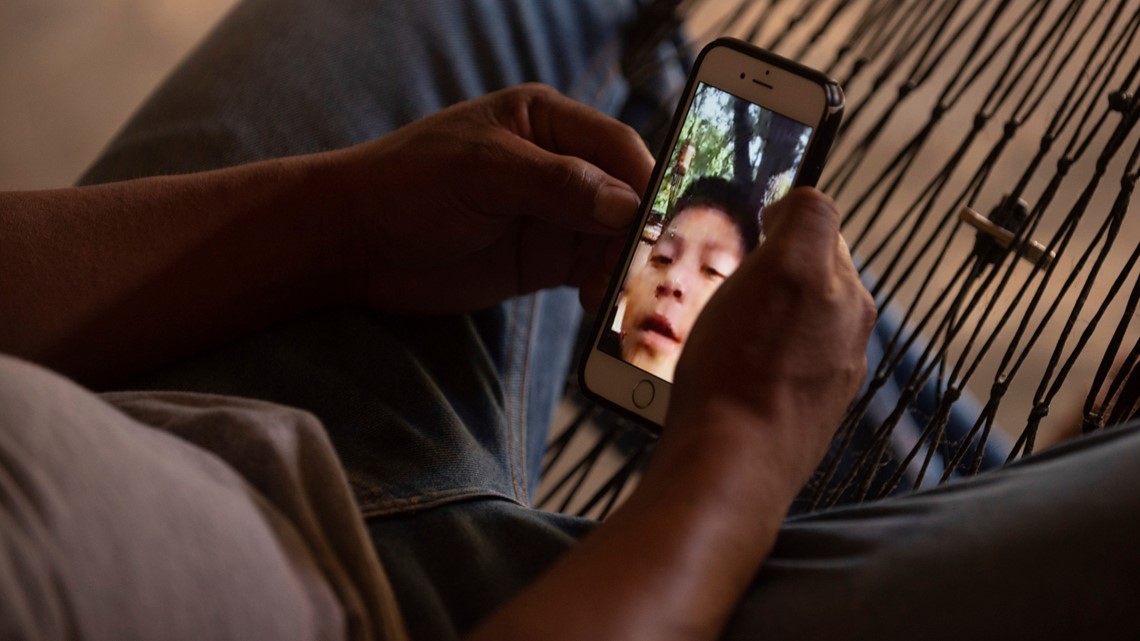
"We have to make sure they know: We're not trying to adopt," Matthew says. "We're not trying to take."
After the kids went to bed one night, they sat in their living room and talked. What would happen if David wasn't allowed back into the United States and Byron had to return to Guatemala? How would he adjust? How would they and their children adjust? Would they ever see him again?
Holly starts to cry.
"(If) we know nothing about it other than they're safe? That's fine. That's perfectly fine. We still were able to provide a place for him."
___
When his sons ask David when their brother was coming home, his answer is always the same, optimistic but indefinite.
"Pronto," he says. Soon.
Everything hinges on the judge's decision.
David is one of 21 parents included in the American Civil Liberties Union's motion that they be allowed to re-enter the country and seek asylum.
The ACLU argues that David and the others were denied a fair chance to request asylum, which would have allowed them to live and work in the U.S. under protections for refugees fleeing political or religious repression.
The government argues that the settlement between the government and the ACLU that paved the way for reunifications doesn't guarantee that families be reunified in America. If David and other parents want to be with their children, the government says, they should agree to have those children returned to them.
Judge Sabraw, who originally ordered the re-unification of families last year, will decide. The case is scheduled to be heard Friday.
If the ACLU wins, David could be in the U.S. in a matter of weeks. He could eventually petition for the admission of Florinda and their other two children.
If it loses, Byron will most likely return to Guatemala and all its dangers.
Several weeks ago, David sent the recording of a song to Holly. She played it for Byron.
"Donde quiera que estés, donde quiera que vayas, por favor, te lo pido que regreses a mi lado, nuestro niño perdido, porque solo un milagro nos lo devolverá," the song goes.
It translates: "Wherever you are, wherever you go, I ask you to please return to my side, our lost son, because only a miracle will bring you back to us."
___
Sonny Figueroa reported from San Miguel de Limón.

